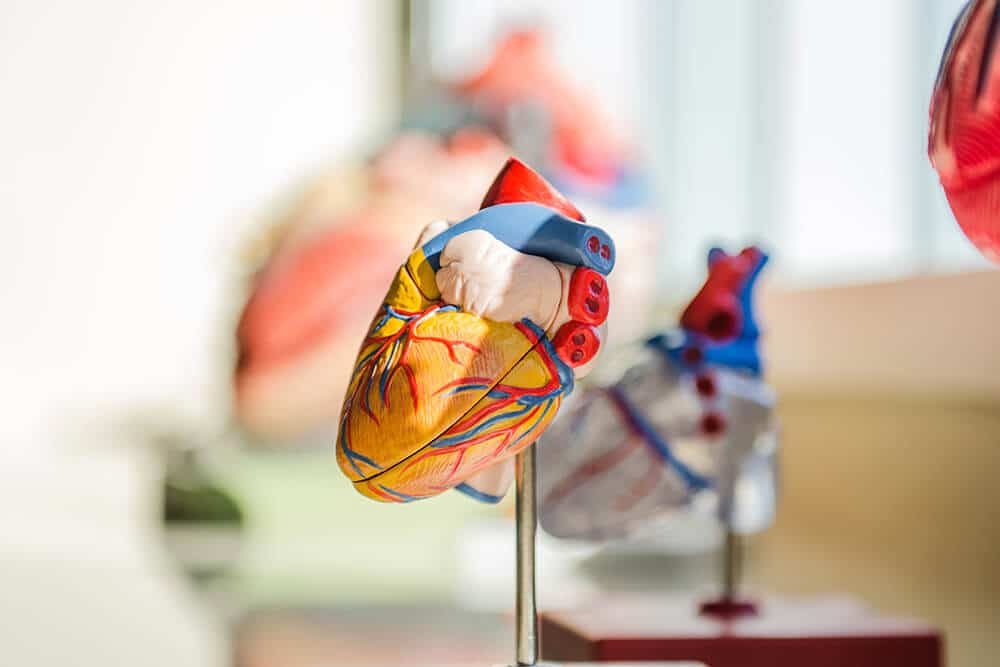
Mesothelioma is a unique form of cancer that affects the mesothelium of an organ in the patient’s body. The mesothelium is a lining made up of a layer of specialized cells called mesothelial cells. The mesothelium lines the outside of most major internal organs, and runs along the inside of areas such as the stomach, chest, and heart. Each organ’s mesothelium is given a different name.
The mesothelium is an essential part of the organ’s functioning and protection system. Lubricating fluid produced in the mesothelium helps facilitate movement, especially important in areas such as the lungs and heart that need to be able to expand and contract with ease. Malignant mesothelioma, the cancerous form of mesothelioma, is a condition in which cancerous (as opposed to benign) tumors grow in the mesothelium. Usually referred to simply as mesothelioma, this cancer has been known to develop in the mesothelium of four different organs.
Types of Mesothelioma and Organs Affected
Which bodily organs will be affected by mesothelioma depends upon what type of this rare cancer the patient has been diagnosed with. Although pleural mesothelioma is by far the most prevalent type, there are three additional forms of mesothelioma, each developing in the mesothelium of a distinct organ of the body. The following information provides an overview of the four recognized types of mesothelioma, along with the organs most highly involved in the progression of the disease.
Pleural Mesothelioma. In this most common form of mesothelioma, cancer forms in the lining (called the pleura) of the lungs. This type of the illness affects 80-90% of those who are diagnosed with mesothelioma. The effects most closely associated with pleural mesothelioma are concentrated in the lungs and chest.
- Lungs. When the pleura is damaged by the effects of pleural mesothelioma, patients experience symptoms such as chest pain, coughing, shortness of breath, and the fatigue associated with an inability to catch one’s breath. Complications of the disease can come in the form of pleural effusion (a build-up of excess fluid), respiratory infections, air leaks, a folded or collapsed lung, or treatment-related pneumonitis.
Peritoneal Mesothelioma. Peritoneal mesothelioma cases comprise up to 20% of those diagnosed, making it the second most common type. This cancer involves the peritoneum, or the mesothelium lining the abdominal cavity. Patients diagnosed with peritoneal mesothelioma can expect the following organs to be most affected:
- Stomach. When the peritoneum is affected by mesothelioma, those diagnosed with the disease often suffer abdominal pain and swelling, loss of appetite and weight loss, nausea, and digestive failure.
- Intestines and Other Abdominal Organs. As tumors develop, pressure can build against the surrounding organs and spread to form new tumors. Other organs involved within the digestive system, such as the small and large intestine, can be particularly affected as peritoneal mesothelioma progresses.
Pericardial Mesothelioma. A rare form of mesothelioma seen in only about 1% of diagnosed patients, pericardial mesothelioma affects the lining of the heart, or pericardium. As there are only about 150 documented cases available for study, researchers and physicians still have much to learn about this untypical type of mesothelioma. One area under study is the link between asbestos exposure and tumor growth in the heart lining, a less likely association than the more obvious links of asbestos exposure to the lungs and stomach. It is known that the organ most affected by pericardial mesothelioma is the heart.
- Heart. One of the more difficult cancers to diagnose, pericardial mesothelioma often exists without the appearance of symptoms. The fluid buildup and thickening of walls around the heart will eventually lead to detectable conditions such as chest pain, arrhythmia (irregular heartbeat), and coughing or difficulty breathing.
Testicular Mesothelioma. As the most uncommon type of the disease, testicular mesothelioma is only found in less than 1% of diagnosed cases. It develops in the tunica vaginalis lining the testicles, and, like pericardial mesothelioma, it is still in need of further study to be more fully understood by medical researchers. The small number of patients who are diagnosed with this very rare disease will generally experience symptoms concentrated in the pelvic area.
- Testicles. In several cases, doctors have initially mistaken the appearance of testicular mesothelioma for a more common ailment such as a hernia, and mesothelioma cancer is only diagnosed during or after surgery. The most frequent symptom is a buildup of fluid in the scrotum, which can lead to intense pressure and pain.
Other Ways the Body Can Be Affected by Mesothelioma
The effects of an aggressive cancer and its treatment regimen will inevitably have a serious impact on the human body. Individuals who have been diagnosed with one of the four types of malignant mesothelioma have documented a wide variety of symptoms ranging in location and severity. The following conditions have been observed in mesothelioma patients:
- Weight Loss. Loss of muscle and overall body weight is a common side effect as the body fights cancerous cells and copes with powerful treatment methods like radiation and chemotherapy, both of which can also lead to loss of appetite.
- Anemia. Anemia is the medical term for a lack of healthy red blood cells to carry oxygen to organs and tissues. Mesothelioma-targeting treatments increase the risk of developing this condition.
- Fatigue. It is unsurprising that fatigue is one of the number one symptoms cancer patients report. The physical exhaustion of a body battling extreme conditions can make patients feel like any movement or exertion requires a disproportionate amount of effort.
- Neuropathy. Nerve damage is an all-too-common side effect of chemotherapy, and many mesothelioma patients are familiar with the acronym CIPN—chemotherapy-induced peripheral neuropathy.
- Blood Clots. While many cancer patients are at risk of developing blood clots, those who suffer from lung and abdominal cancers are at even greater risk. Individuals with mesothelioma may develop deep vein thrombosis (DVT) in the leg, thigh or pelvis, or a pulmonary embolism (PE), a clot which travels to the lung from another area of the body.
- Fever and Sweating. In the later stages of mesothelioma, it is not uncommon for patients to experience fevers and night sweats. This can be a sign of the body’s struggle against cancer cells, a side effect of treatment, or a symptom of infection.
- Emotional Distress and Mental Impairment. Intense pain, physical distress, and uncertainty of one’s future produce the conditions for acute emotional and psychological suffering. Some cancer treatments have also been known to produce mental side effects like chemo brain.
Contact an Experienced Mesothelioma Lawyer
At Frost Law Firm, we believe that our clients deserve a dedicated team of attorneys who treat each case as they would their own. At our office, we know personally the pain that mesothelioma brings to the lives of those diagnosed and the ones who love them. No one should ever endure a cancer battle alone.
Our team will meet with you during your first appointment, and we will be by your side all the way to the resolution of your case. We invite you to contact our team of mesothelioma lawyers to see how our experience, dedication, and legal expertise can help you. You can fill out a form for a free initial consultation to begin discussions about your case.























